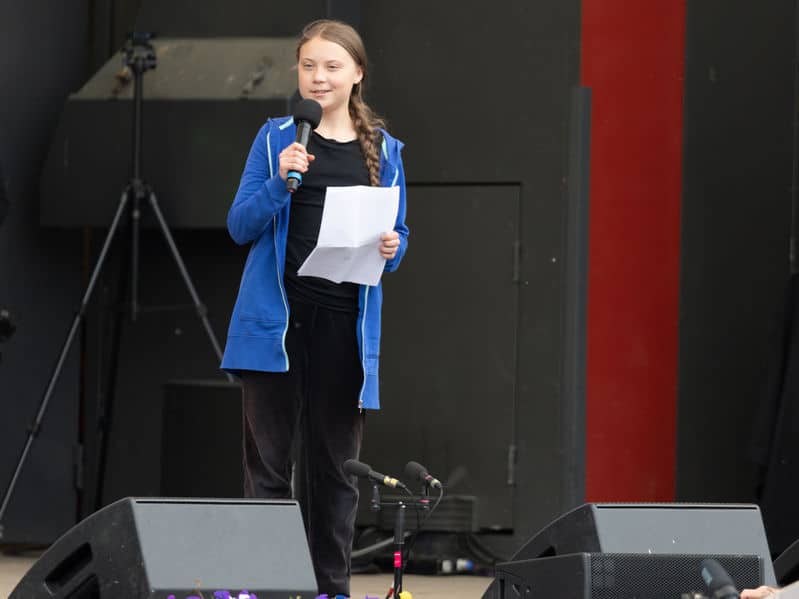About 2,500 years ago, there lived a man named Jeremiah. He was a prophet who lived in ancient Israel during one of the most politically and religiously corrupt times in Israel’s history.
Here’s how it was supposed to work: God called the nation in general and its leaders in particular to believe in the one true God of Israel.
But during Jeremiah’s time, the leaders of the nation started worshiping other gods. The word in the Bible for that is idolatry.
Now, if you are like me, you start to cringe whenever you hear religious words like idolatry. I mean, what’s the big deal? Jesus said that he has other sheep that are not of this fold (John 10:16). There are people in the Old Testament and New Testament who worship other gods, but who are shown to be faithful anyway. The magi who followed a star that led them to Jesus are a good example of this.
So, we come back to the question, what’s the big deal with idolatry? Well, I’m going to tell you what the big deal is.
Jeremiah and the other prophets believed that the particular God of Israel cared deeply about justice. Jeremiah thought that our understanding of God and our understanding of justice should be connected.
Jeremiah knew that the true God cares about the plight of the poor, the widow, the orphan, the stranger, and those on the margins. So, if you believe in the God who cares about those people, then according to Jeremiah, you should care about those people, too.
But during Jeremiah’s time, the political and religious leaders believed in other gods. They believed in the gods of oppression. They believed in gods that justified their shared desire for power and wealth and prestige at the expense of others.
They didn’t believe in the God of Israel, for the God of Israel is consumed with a desire for justice for those in need.
But Jeremiah did believe in the God of Israel and so, like that God, he was consumed with a desire for justice for those in need.
Here’s the thing: I personally don’t really care if you call God Allah or Buddha or Spirit or Jesus or Hey You or Father or Mother or Nothing or Whatever. God has many different names in the Bible. What I do care about is that whatever name we call God, we recognize that God desires a more just world. And then we partner up with God in making the world a more just place.
Jeremiah was brilliant because he knew that justice issues are all connected. Many scholars working in the field of justice today agree. They claim that justice issues are all related to each other. In other words, an injustice in one area does not stay isolated in that one area. Injustice in one area leads to injustice in other areas. It snowballs out of control. But the good news is that the reverse is also true. Acting for justice in one area tends to bring more justice to other areas.
Christians don’t live by fear. We live by hope. We live by love. We live by justice.
Here’s what this meant for Jeremiah: He warned that if political and religious leaders worshipped the idolatrous gods of oppression that the leaders would also become oppressive. They would become consumed with a desire for power, wealth, or prestige. Jeremiah warned that their greed would become contagious. It would snowball. The nation as a whole would become consumed by that greed and the nation would destroy itself with greed.
That is the apocalyptic warning of Jeremiah and the prophets.
But Jeremiah took it a step further because he knew that justice issues are all interconnected and injustice snowballs out of control.
And so in our passage this morning, the prophet Jeremiah warned 2,500 years ago that a nation consumed with greed and violence and power would not only destroy itself, but it would also destroy the planet. Jeremiah claimed that disaster leads to disaster, including ecological disaster. He warned that the earth would be laid waste and void. The heavens would go dark, the mountains would quake and land that produced fruit would become a desert. Indeed, the whole earth would mourn. Is any of this sounding familiar to you?
Why did this happen? Jeremiah says a few verses before our passages that, “Your ways and your doings have brought this upon you.”
That was Jeremiah’s apocalyptic warning. But his warning was meant to inspire hope. Because the people brought this upon themselves with their destructive ways, Jeremiah’s hope was that the people could take responsibility to change their ways.
What’s interesting is that Jeremiah’s warning is even more relevant today than in his own time.
Today we have political and religious leaders who do not worship the God of Israel. They worship the gods of greed and oppression.
Fortunately, we have prophets today, who, like Jeremiah, speak the truth about injustice and how we might live in a more just world.
One of the great prophets of our time is a 16-year-old girl from Sweden named Greta Thunberg. Greta is a climate change activist who, like Jeremiah, is determined to speak truth to power.
This last Friday, Greta was in Washington DC to lead a protest at the White House, demanding that US politicians at the very top “Listen to science, and take responsibility.”
The Olive
Branch
Take A Breath with Us
Our weekly newsletter creates a space to take a breath. Once we slow down, we can see the way desire, imitation, and conflict operate in our lives and in the world, and begin to create peace. In addition to the newsletter, you will receive the free "Unlearn the Bible" ebook when you subscribe.
Like Jeremiah 2,500 years ago, Greta is also an apocalyptic prophet. She warns that [quote], “Our house is on fire … We are facing a disaster of unspoken sufferings for enormous amounts of people. And now is not the time for speaking politely or focusing on what we can or cannot say. Now is the time to speak clearly.”

And we saw the results of the “unspoken sufferings for enormous amounts of people” brought on by climate change during the last few weeks as hurricane Dorian destroyed the Bahamian Islands. There is less and less reason to doubt that climate change increases the destruction of natural disasters like Dorian. These disasters snowball out of control and there is no reason to doubt that their most traumatic effects are on the poor. It surely grieves the God of Israel that rich countries like ours which have greatly benefited from fossil fuel consumption, can so callously disregard the suffering our lifestyle has inflicted on poor countries.
To add to the injustice, those suffering the destruction of their homes and livelihood wrought by Dorian tried to find refuge in the United States have been turned away. Citing concern that many of these refugees would be “very bad people and very bad gang members” our president privileged a concern for safety above a passion for justice. This is idolatry and Jeremiah would rightly remind us that when we worship our own security we fail to worship the God of Israel. Because then we neglect our call to be care for the poor and suffering who have nowhere to turn.
Because we follow Jesus who learned about justice from Jeremiah, Christians don’t live by fear. We live by hope. We live by love. We live by justice.
And yet, hope can be difficult to come by when it comes to the climate crisis. Last year, the Intergovernmental Panel on Climate Change reported that we have just 12 years to turn the tide.
That 12-year benchmark could lead many into despair. But, friends, we don’t have time to despair. The prophets have spoken. 2,500 years ago, the prophet Jeremiah claimed that the leaders of his nation had a responsibility to care for the poor, weak, and marginalized. He warned that if they didn’t, the earth would be destroyed.
And today, the prophet Greta Thunberg is telling us that we are destroying the earth. But Jeremiah and Greta remind us that hope is not lost. There is something we can do. Yes, we can make personal decisions to drive and fly less and to recycle more. But you and I can only do so much. More than what individuals or a church body can do on our own, we need to elect political leaders who actually believe science is a good thing. We need to elect political leaders who will take the lead in solving the climate crisis and the injustice it produces. And for that to happen, as individuals and as a church we need to have the courage and boldness to raise our voice in support of climate justice policies and hold our politicians accountable.
This coming Friday, high school students like Greta throughout the world will march in the streets of our cities to demand more just climate change policies. The students have asked adults to join them. I plan to be at the march here in Portland. Let me know if you are interested in joining their march and I will give you information.
Because the prophets of old and the young prophets of today are calling on us. May we heed their call. Amen.
This was a sermon I preached at Clackamas United Church of Christ, near Portland, Oregon. The primary scripture text as Jeremiah 4:22-28.
Top Image: NASA
Bottom Image: 123rf.com
